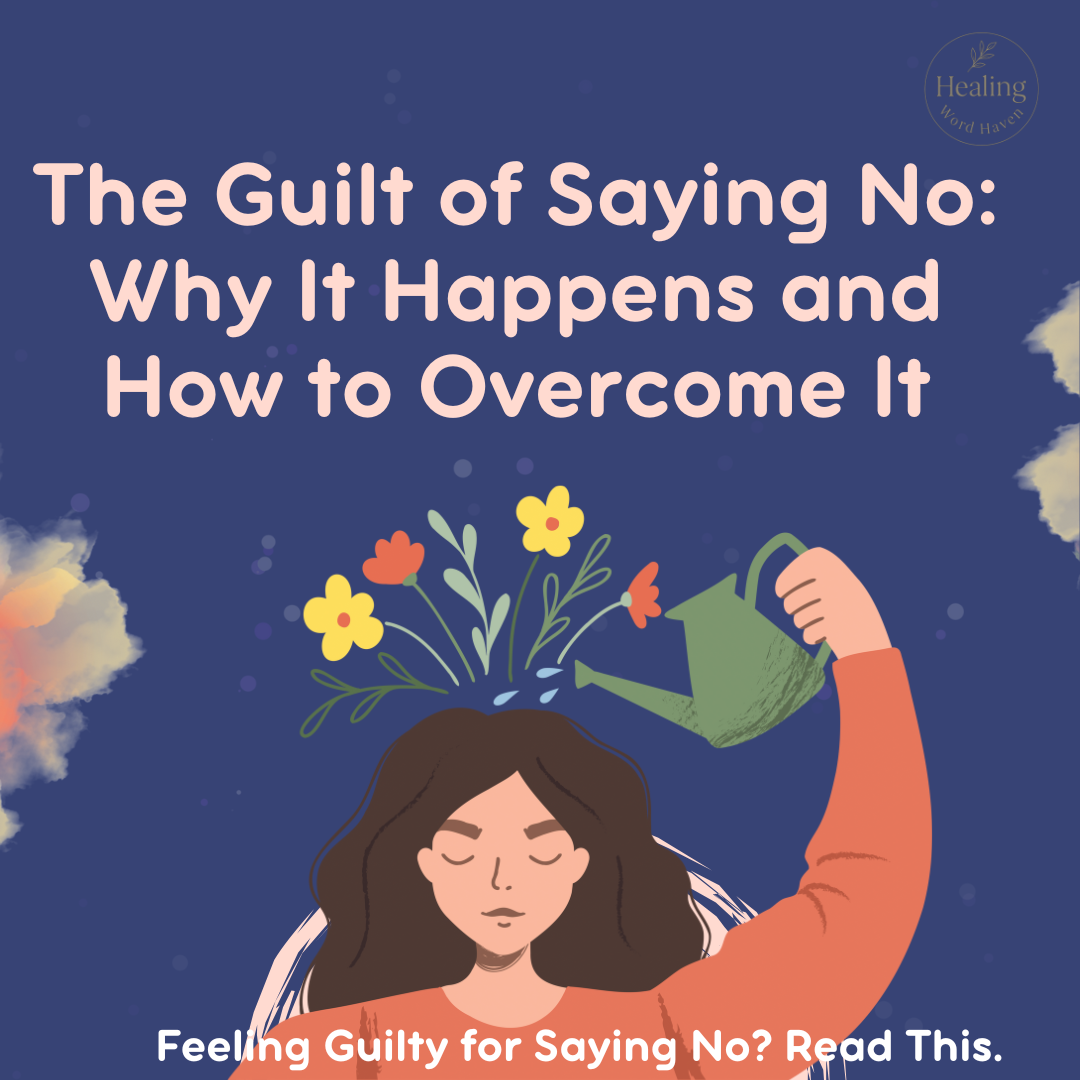You say no… and then the guilt floods in.
The “What if they think I’m selfish?”
The “Maybe I should’ve said yes…”
The overthinking. The second-guessing. The need to explain yourself.
Sound familiar?
You're not alone.
Guilt is one of the biggest emotional blocks that keeps women stuck in cycles of over giving and self-neglect.
But the truth is:
You can say no with love. You can say no and still be a good person. You can say no and not carry guilt like a scar.
Let’s talk about why this guilt shows up — and how to free yourself from it.
1. Why Saying No Feels So Wrong (Even When It’s Right)
Many women are raised to be agreeable, helpful, and accommodating.
Saying “no” can feel like a betrayal of your identity — or worse, like a rejection of your value.
But constantly saying yes to avoid guilt often leads to:
- Burnout
- Hidden resentment
- A lost sense of self
You weren’t created to be available for everyone but yourself.
2. Guilt Is Often a Sign That You’re Breaking Old Conditioning
When you start honoring your needs, your nervous system may interpret it as danger.
Why? Because it’s unfamiliar.
That tight feeling in your chest isn’t always a sign you’re doing something wrong.
Sometimes, it’s the discomfort of doing something new and healthy.
Instead of saying “I feel guilty,” try reframing it as:
"This feels uncomfortable, but I’m not doing anything wrong.”
3. You Don’t Need to Explain, Apologize, or Justify Your Boundaries
You can simply say:
- “I won’t be able to.”
- “That doesn’t work for me.”
- “I’m prioritizing rest right now.”
No is a full sentence.
You don’t have to earn the right to protect your energy.
And those who respect you… will understand.
4. Releasing Guilt Takes Practice — But It’s Possible
Try this:
- Journal: What am I afraid will happen if I say no?
- Remind yourself: I’m allowed to have limits.
- Celebrate small wins when you say no — it’s progress.
You’re not becoming “mean” — you’re becoming more self-honoring.
Ready to Say No Without Shame?
Inside, you'll find practical scripts, mindset shifts, and healing affirmations to help you stop overexplaining and start setting clear, guilt-free boundaries.
Saying no doesn’t make you bad.
Saying no doesn’t make you selfish.
Saying no doesn’t mean you’re rejecting someone — it means you’re choosing you.
You can be kind and still have limits.
And the more you practice, the freer you’ll feel.

